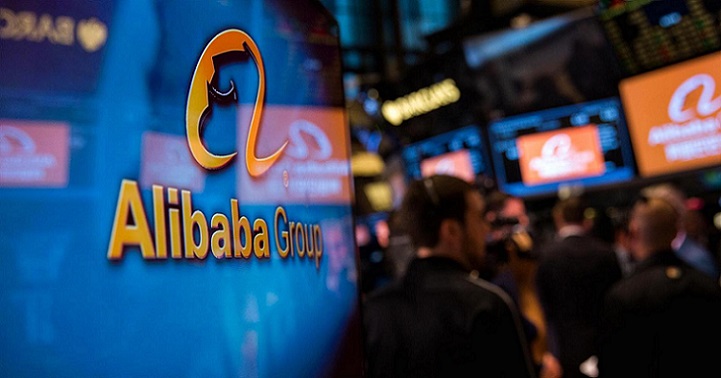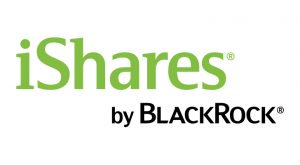
BABA's share price nearly doubled this year, directly killing a number of star stocks in the US stock market and sitting on the throne of "divine stocks". The market likes to compare the Chinese e-commerce giant with the US e-commerce giant Amazon.Com Inc, while Amazon.Com Inc is up "only" 26% so far this year. As a result, although BABA's share price has fallen in the past few days, it has not affected his status at all.
Wall Street is mostly bullish on BABA shares, and some sell-side analysts even set a target price of $200, which means there is still room for a big rise in the stock price. BABA rose to benefit not only BABA shareholders who directly hold positions, but also ETF who hold positions in BABA shares.
 At present, there are about 30 ETF holding BABA's stock, but in the real sense, there are only a few ETF mainly to invest in BABA. For investors who are optimistic about BABA but want to avoid the risk of a single investment, this kind of ETF may be a good choice.
At present, there are about 30 ETF holding BABA's stock, but in the real sense, there are only a few ETF mainly to invest in BABA. For investors who are optimistic about BABA but want to avoid the risk of a single investment, this kind of ETF may be a good choice.
1 、 MCHI

Full name iShares MSCI China ETF, Anshuo MSCI China ETF. The rate is 0.64% per year, that is, it costs $64 to operate a $10,000 investment.
When it comes to investing in BABA's ETF, investors usually think of the ETF of companies focused on the Internet and technology in China. Did not expect that diversified funds such as MCHI will still be linked to BABA.
MCHI tracks the MSCI China Index and holds 151stocks. In the ETF market, the fund is one of the funds that hold the largest proportion of BABA shares. BABA stock accounts for 13.3% of the investment share of MCHI, which is a veritable investment in BABA's ETF. Nearly half of MCHI's money is allocated to technology and non-essential consumer stocks, while FXI (full name: iShares China Large-Cap ETF, Anshuo China large-cap ETF) accounts for only 10% of technology stocks, and its investment focuses on "bulky" bank stocks.
Different configuration ratios of BABA and the industry will bring different results. MCHI is up about 40% so far this year, while FXI is up 28%.

2 、 KWEB

Full name KraneShares CSI China Internet ETF, Jinrui China overseas Internet ETF. The rate is 0.72%.
There is no doubt that KWEB is the king of Internet ETF in China. It has been listed for more than four years and its net worth has exceeded US $800,000. after BABA's listing, KWEB was the first batch of ETF to add BABA to its investment basket.
Currently, KWEB holds 10.3% of BABA's shares, ranking second in the fund's share of shares. Other stocks in the KWEB investment basket are also familiar names to investors, such as Baidu, Inc., JD.com, Trip.com and so on. In other words, KWEB is a real growth fund.
KWEB has risen 56% so far this year, largely due to investment in BABA, reflecting the explosive growth trend of China's Internet industry. Jinrui Fund data show that "China's e-commerce reached US $749 billion in 2016, an increase of 26.2% compared with US $394.9 billion."

3 、 CQQQ

Full name Guggenheim China Technology ETF, Guggenheim China Science and Technology Fund. The rate is 0.7%.
Established for eight years, CQQQ exists earlier than ETF, which also invests in Chinese technology and Internet companies. Despite its small size, CQQQ has grown and gained more attention this year because of its stake in BABA. CQQQ has been on the rise so far this year, setting a record and rising 52 per cent so far this year.
CQQQ holds 11.5% of BABA's shares, ranking second in the fund's share of shares. Thanks to a strong push from BABA this year, the fund's closing price has not fallen below its 200-day moving average since January.

CQQQ added about $64 million in assets in the third quarter, accounting for 1. 3% of its total assets under management. (compiled: Debby)
The above only represents the personal views of the author and does not constitute any investment advice related to Futu. Before making any investment decision, investors should consider the risk factors related to investment products according to their own circumstances and consult professional investment advisers if necessary.

 当前大约有30多个ETF持有阿里巴巴的股票,但是真正意义上以投资阿里巴巴为主的ETF只有几个。对于看好阿里但又想规避单一投资风险的投资者来说,此类ETF或是不错选择。
当前大约有30多个ETF持有阿里巴巴的股票,但是真正意义上以投资阿里巴巴为主的ETF只有几个。对于看好阿里但又想规避单一投资风险的投资者来说,此类ETF或是不错选择。